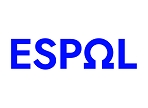FORMATIONS |
Fiche détaillée d'un cours
 | European Food & Agriculture Policy | ||
2023-2024 | FrESPOL European School of Political and Social Sciences
(
ESPOL
)
| ||
Code Cours : | 2324-ESPOL-EIS-EN-4004 | ||
| Niveau | Année de formation | Période | Langue d'enseignement |
|---|---|---|---|
| S1 | FrAnglais |
| Professeur(s) responsable(s) | SABINE WEILAND |
|---|---|
| Intervenant(s) | Pas d'autre intervenant |
- Ce cours apparaît dans les formations suivantes :
- ESPOL - Master 1 Food Politics and Sustainable Development - S1 - 6 ECTS
Objectifs du cours
Food as a policy field covers immense terrain. It is at the intersection of competing issues such as production, consumption, supply chains, trade, government and politics, science and technology, nutrition, public health, environment, ethics, culture and many more. In this array, it is particularly difficult to design food policy and governance on various levels and among diverse actor groups and demands.
In this course, we will explore contemporary food and agriculture policy and governance in Europe, the past and possible futures of the field. We will cover a number of core problems in food policy across various food-related topical areas, across different governance levels, such as agriculture, food quality, public health, and environmental impact and waste. What are the prospects for a (more) sustainable food and agriculture policy in Europe?
Contenu du cours
Session 1 - Introduction: Food and agriculture policy in Europe
Session 2 - Food and agriculture I: History and paradigms
Session 3 - Food and agriculture II: Common agricultural policy
Session 4 - Food and agriculture III: Rural development policy
Session 5 - Food and fisheries: Common Fisheries Policy
Session 6 - Food quality I: Organic agriculture
Session 7 - Food quality II: Food labelling
Session 8 - Food and public health I: Nutrition
Session 9 - Food and public health II: Food safety
Session 10 - Food and the environment I: Greenhouse gas emissions
Session 11 - Food and the environment II: Food waste
Session 12 - Towards a Common European food policy?
Modalités d'enseignement
Organisation du cours
The course has 12 sessions of 2 hours, each consisting of a lecture part, student presentations and interactive elements. The students are encouraged to actively participate and to discuss issues of common interest.
The lectures are designed to outline the topic in general, give a structuring overview and discuss some salient points. The student presentations look in greater detail into some key concepts or topics related to the overall session topic. The discussion part will be open regarding upcoming questions and adapted to the students' interests. The lecture and presentation slides will be uploaded to Moodle.
Course Assessment
Course Attendance: Regular attendance of the sessions is a requirement. NB: In case of unexcused absence in more than one session, the student fails the course.
Compulsory reading: A course reader is available in electronic form on Moodle. You are required to read the basic in preparation of the sessions. Further reading suggestions will be given as well.
Grading: Preparation of student presentations (2 presentations per student over the course) and an essay at the end of the semester. The course grade is based on the presentations (60%) and the essay (40%).
Méthodes pédagogiques
Évaluation
Contrôle continu : coeff. 100
Bibliographie
Fortin, N.D. (2011): Food Regulation. Law, Science, Policy, and Practice. Hoboken.||
Freibauer A. et al. (2011): Sustainable Food Consumption and Production in a Resource-constrained World. European Commission–Standing Committee on Agricultural Research (SCAR). The 3rd SCAR Foresight Exercise. Brussels.||
Gabriel, Y./Lang, T. (2015): The Unmanageable Consumer. 3rd ed. London.||
Gonzalez Fischer, C./Garnett, T. (2016). Plates, Pyramids and Planets. Developments in National Healthy and Sustainable Dietary Guidelines: A State of Play Assessment. Rome/Oxford.||
Havinga, Tetty/van Waarden, Frans/Casey, Donal (eds.) (2015): The Changing Landscape of Food Governance Public and Private Encounters. Cheltenham.||
Herring, R.J. (ed.) (2015): The Oxford Handbook of Food, Politics, and Society. Oxford.||
International Food Policy Research Institute (2016): 2016 Global Food Policy Report. Washington, DC.||
Josling, T./Tangermann, S. (2015): Transatlantic Food and Agricultural Trade Policy. 50 Years of Conflict and Convergence. Cheltenham.||
Lang, T./Barling, D./Caraher, M. (2009): Food Policy: Integrating Health, Environment and Society. Oxford.||
Marsden, T./Sonnino, R. (2012): Human health and wellbeing and the sustainability of urban-regional food systems. Current Opinion in Environmental Sustainability 4: 427-30.||
Marsden, T./Morley, A. (2014): Sustainable Food Systems. Building a New Paradigm. London.||
Oosterveer, P. 2007: Global Governance of Food Production and Consumption. Issues and Challenges. Cheltenham.||
Spaargaren, G./Loeber, A./Oosterveer, P. (eds.) (2012): Food Practices in Transition. Changing Food Consumption, Retail and Production in the Age of Reflexive Modernity. New York.||
van der Meulen, B. (2011): Private Food Law. Governing Food Chains Through contract law, self-regulation, private standards, audits and certification schemes. Wageningen.
* Informations non contractuelles et pouvant être soumises à modification


















































































